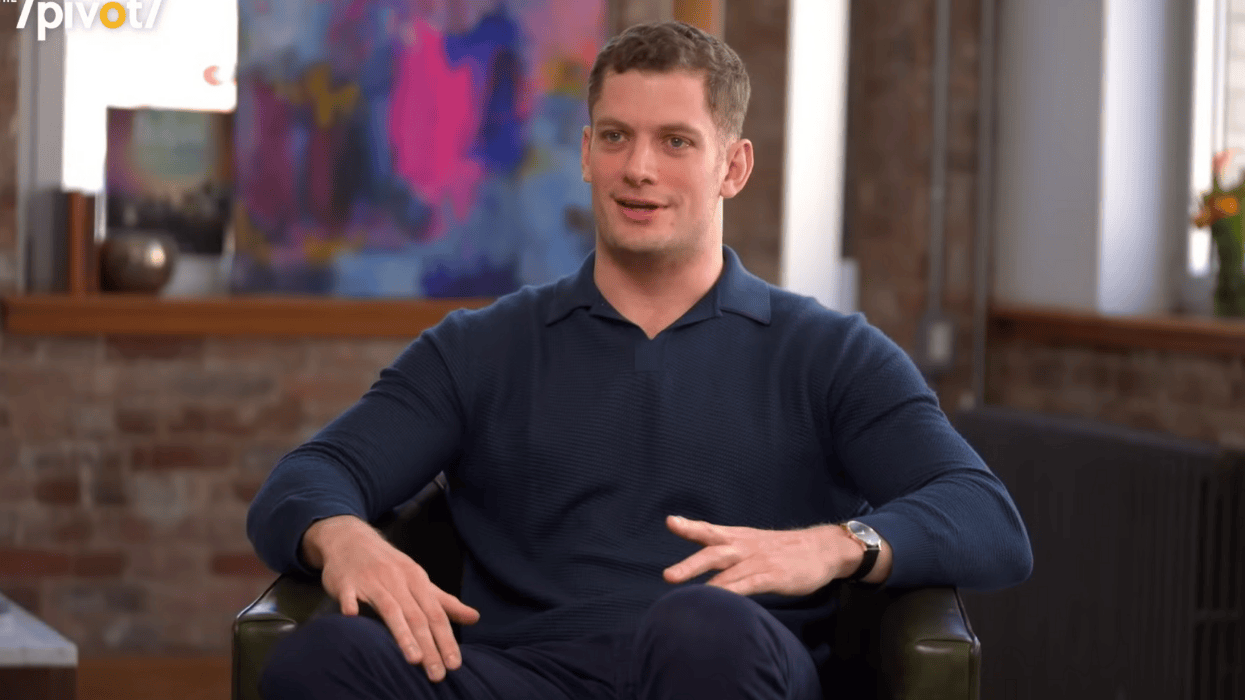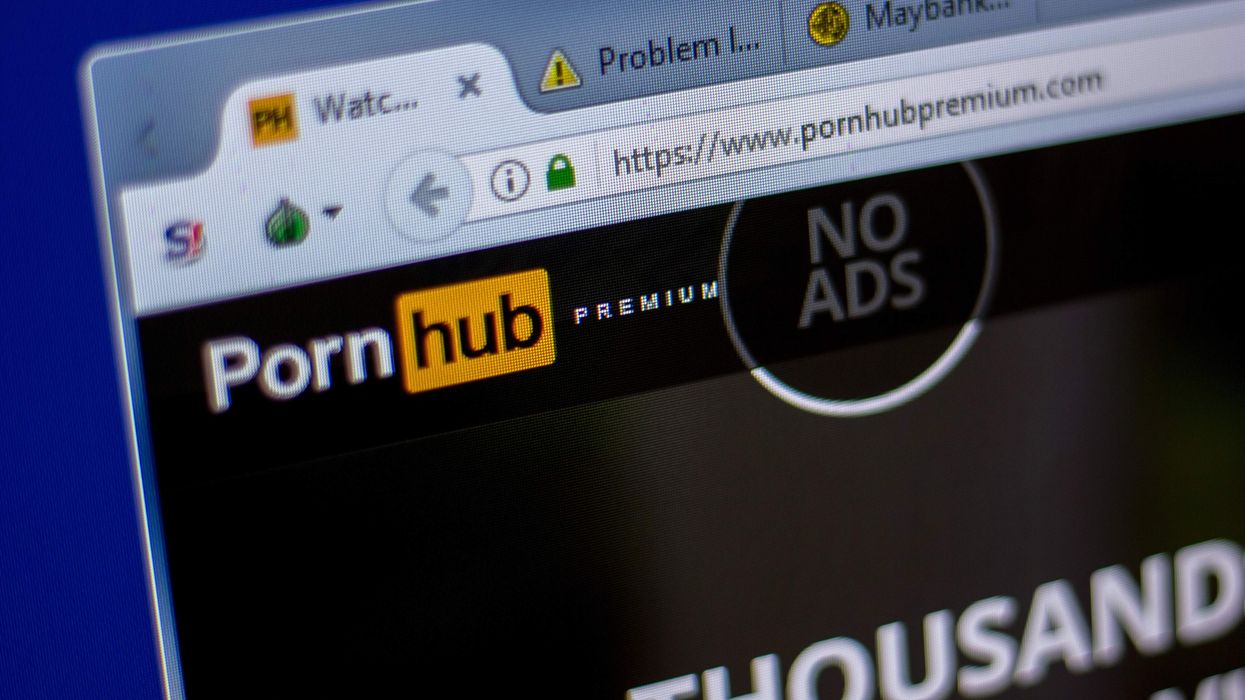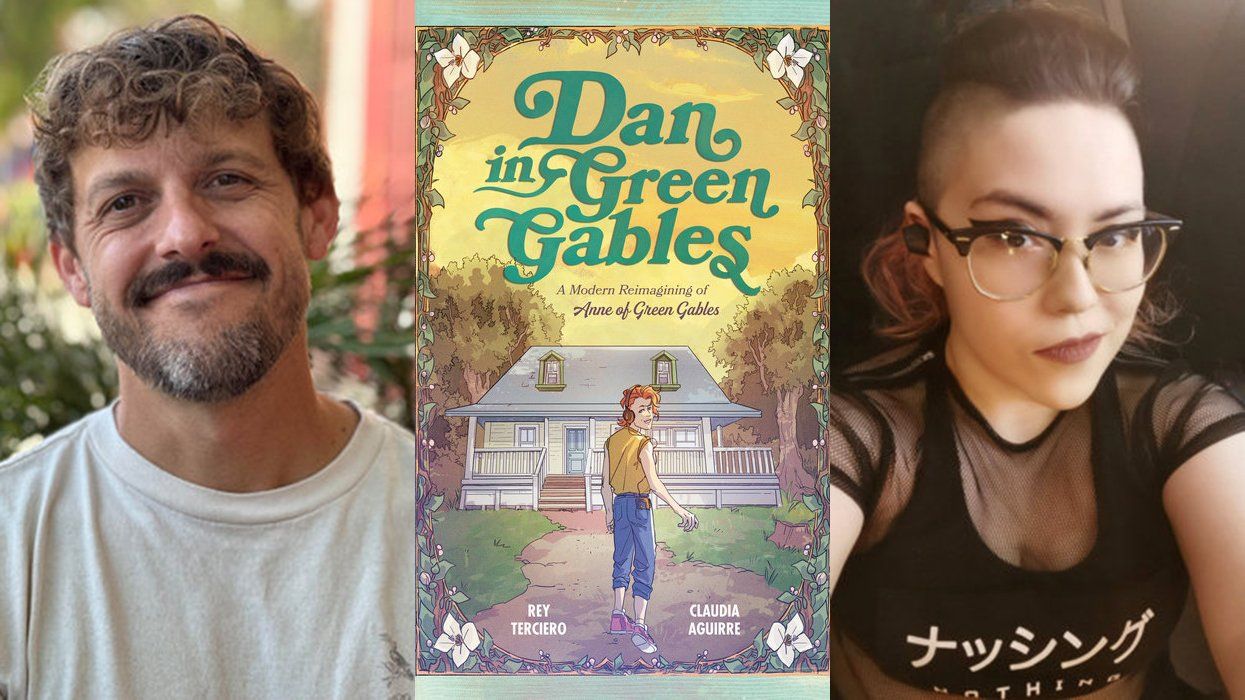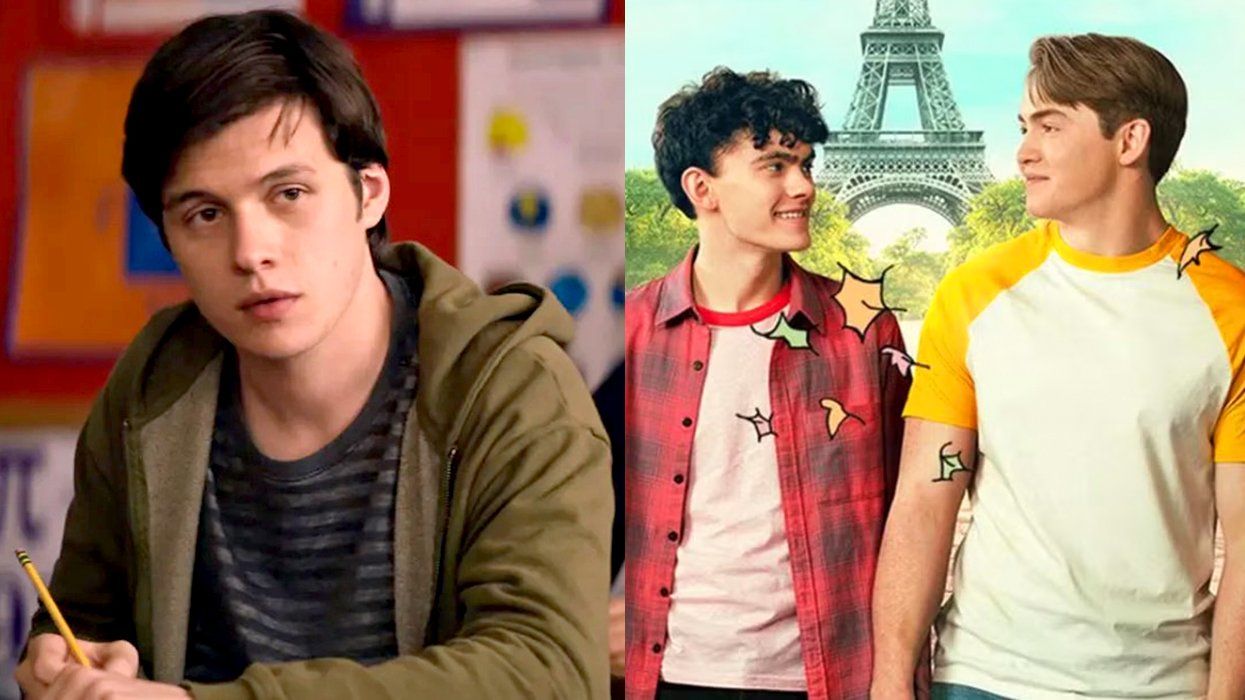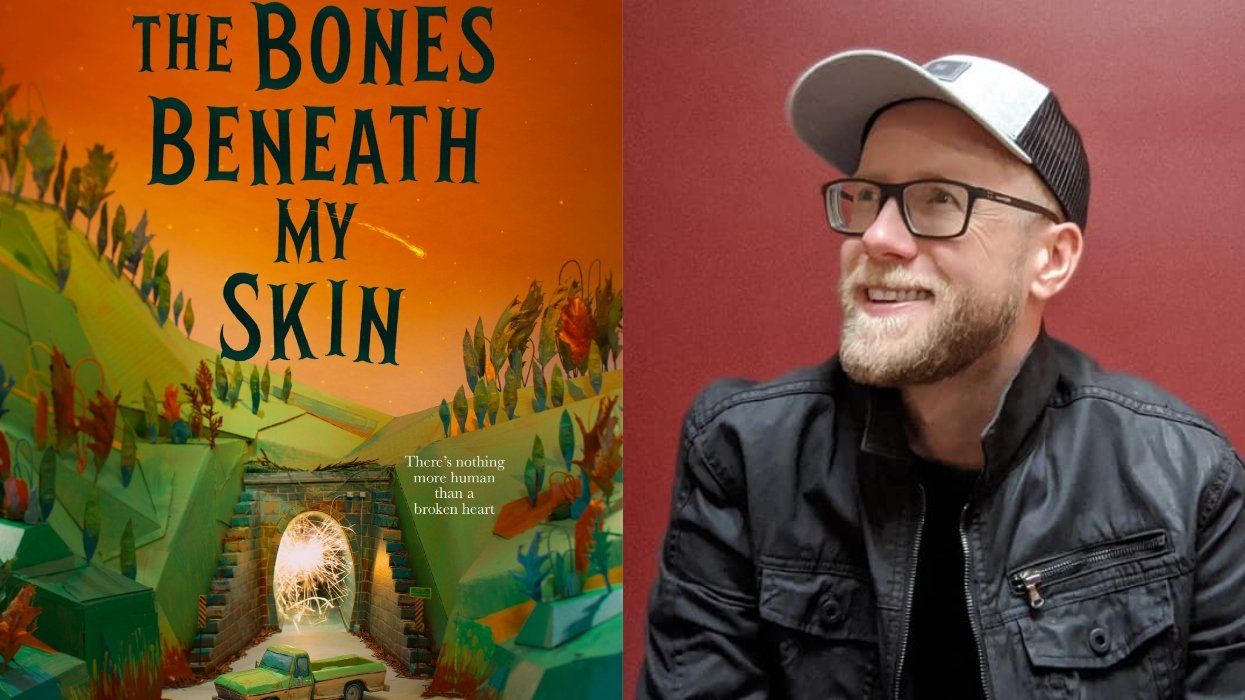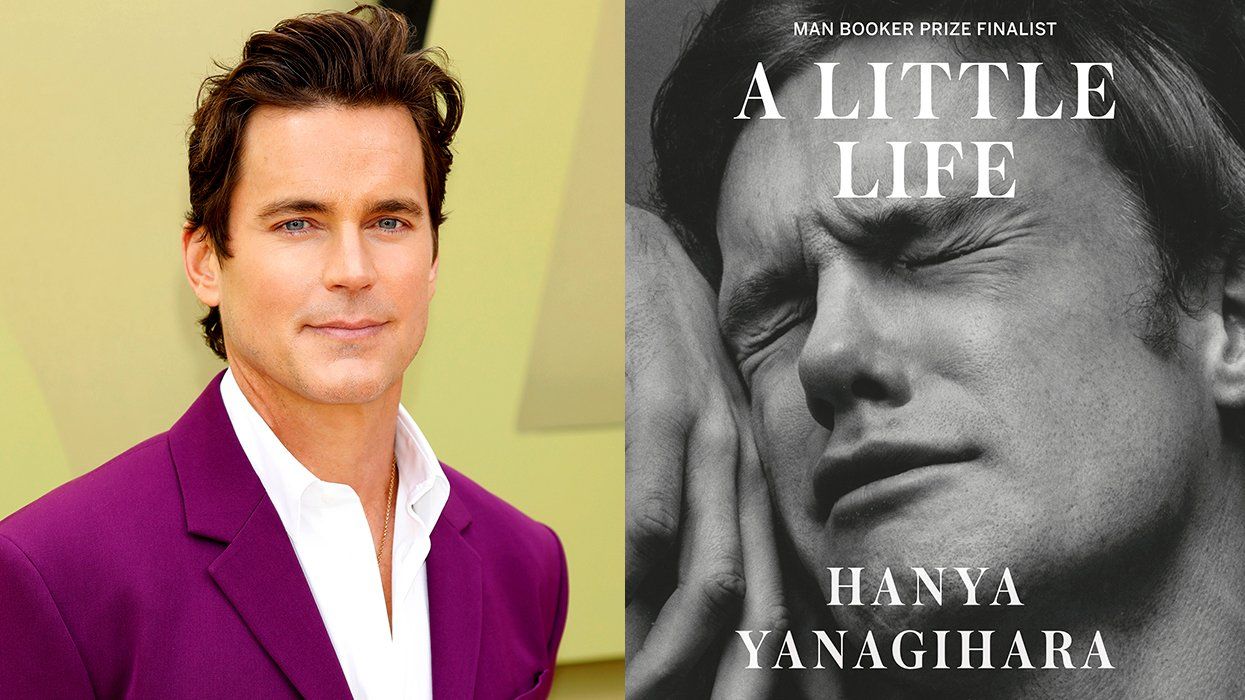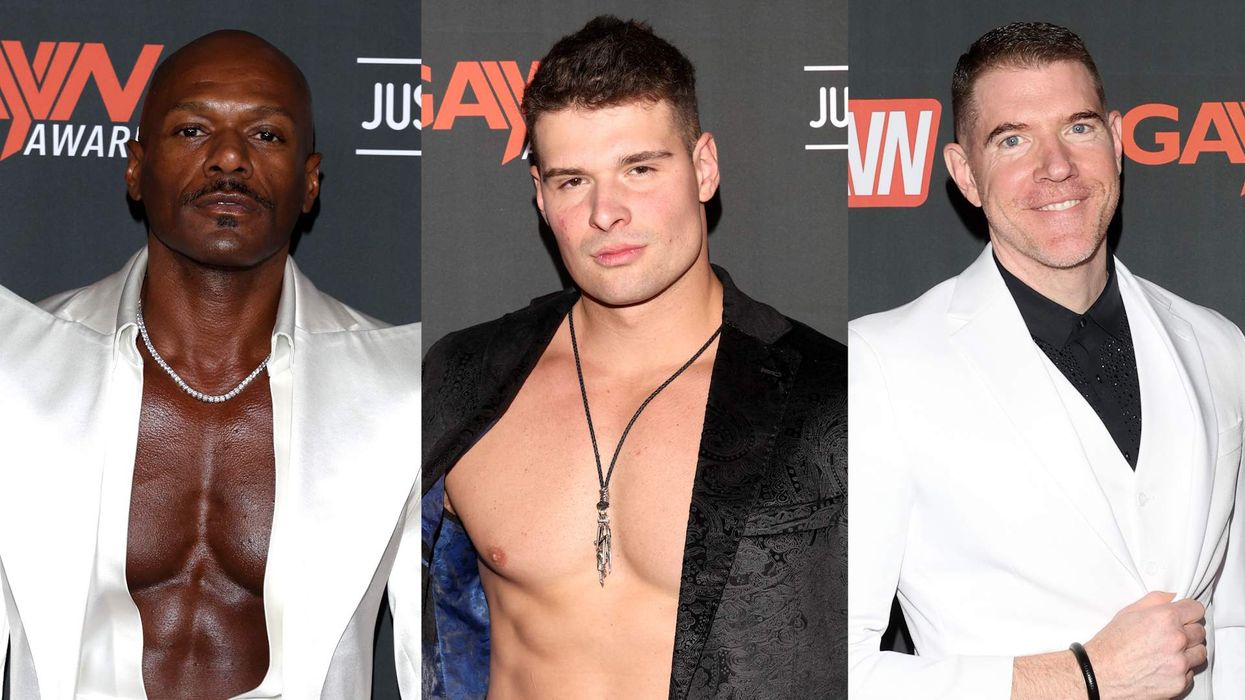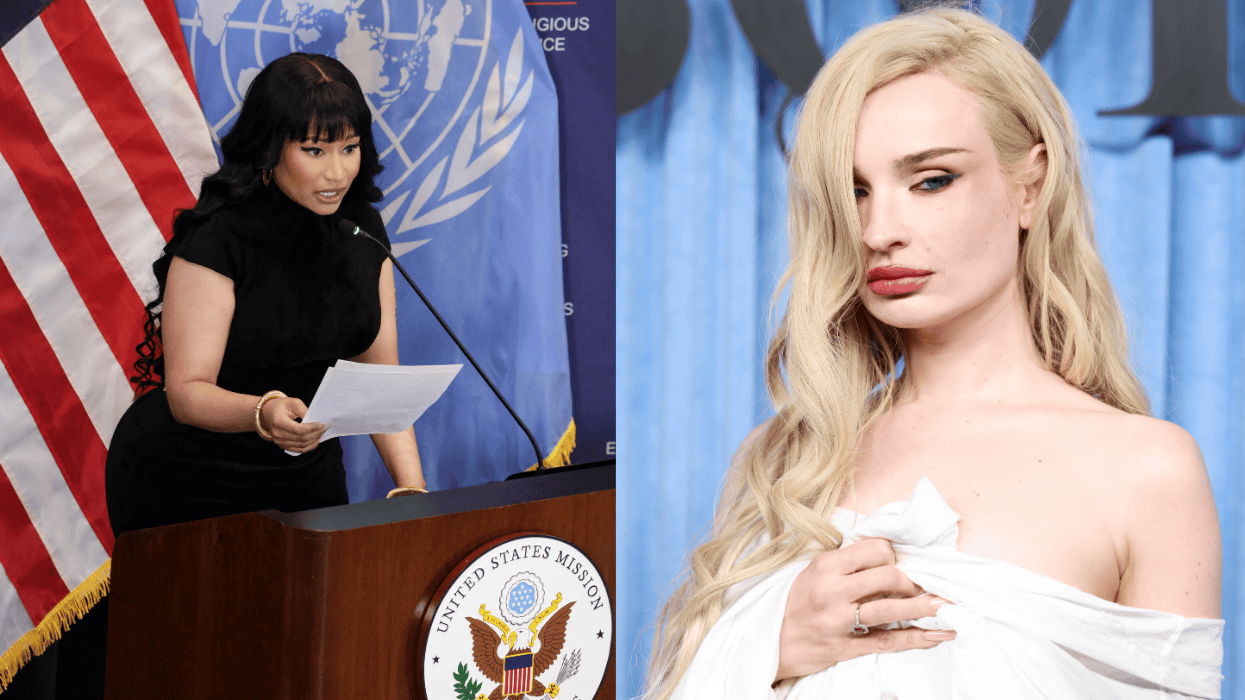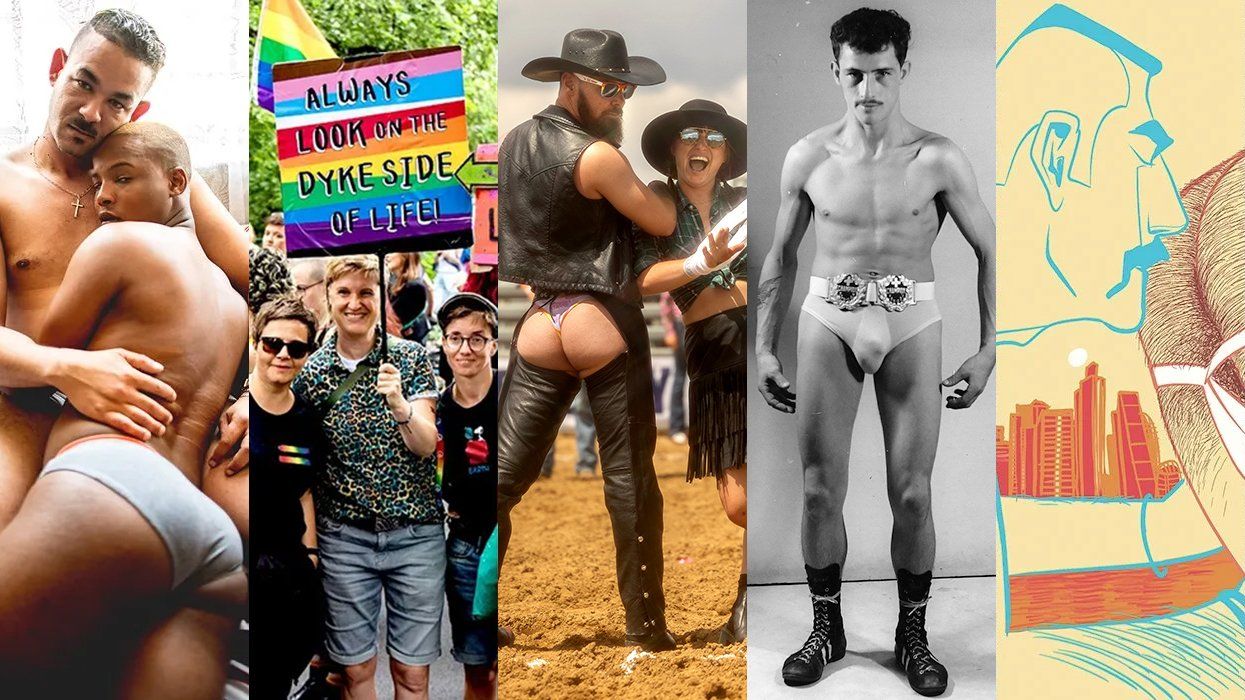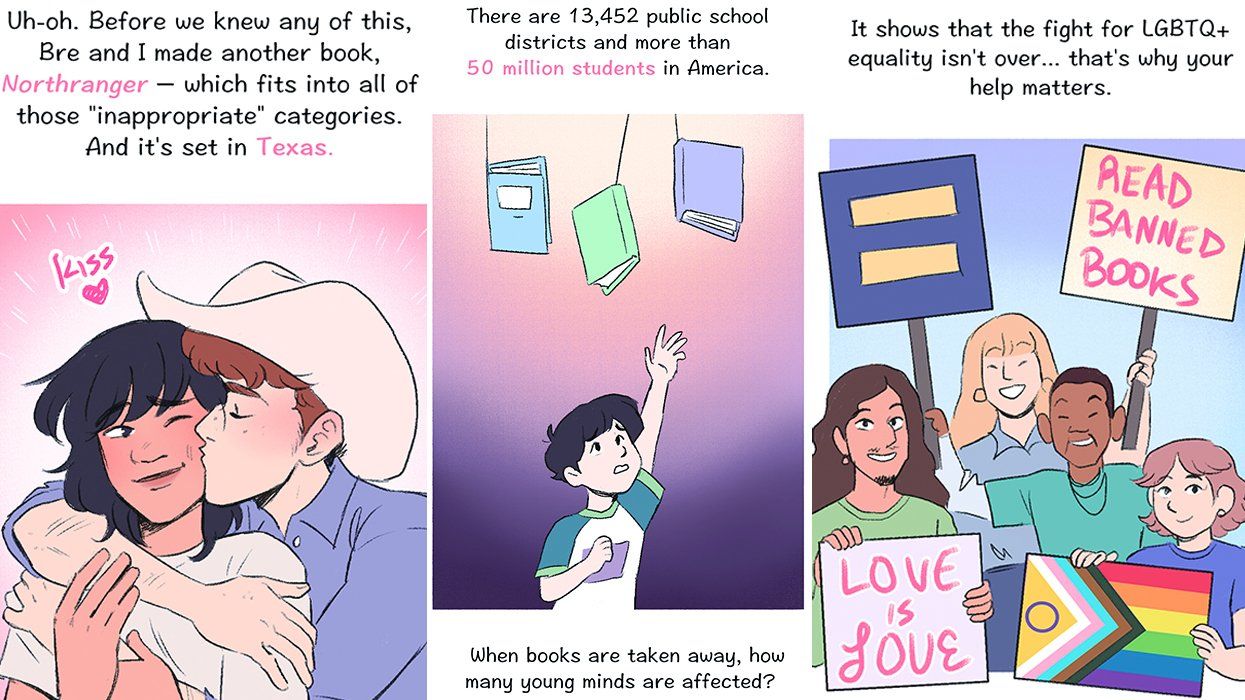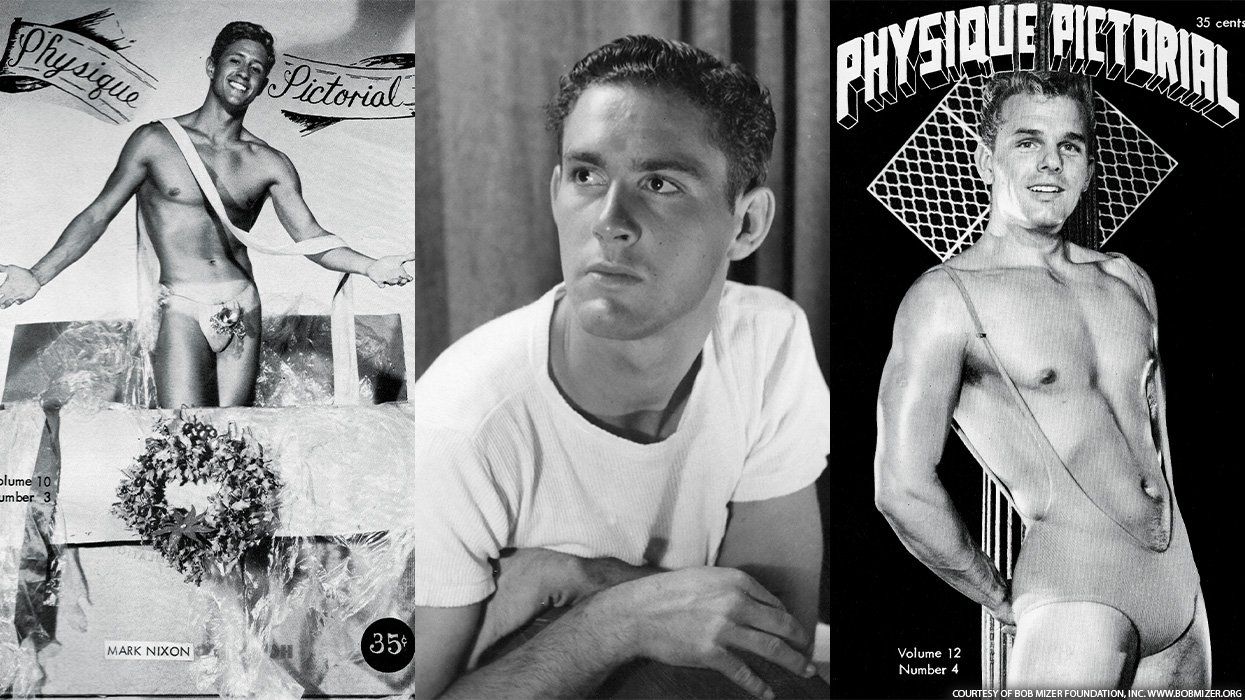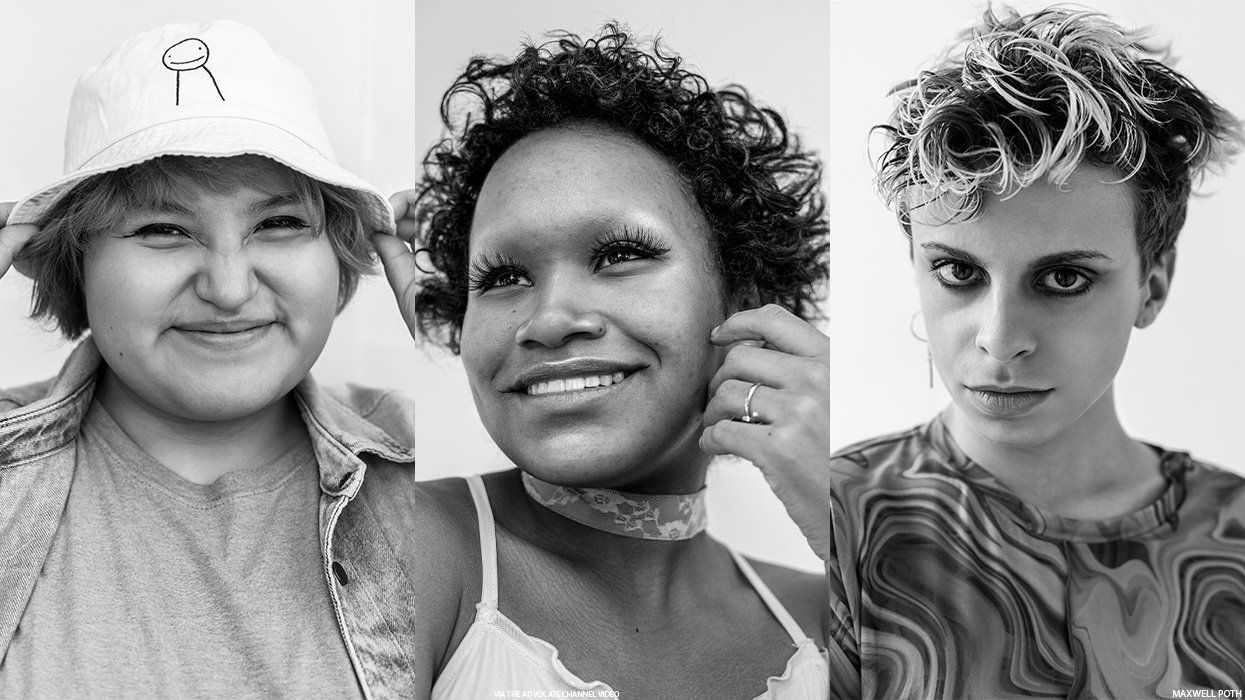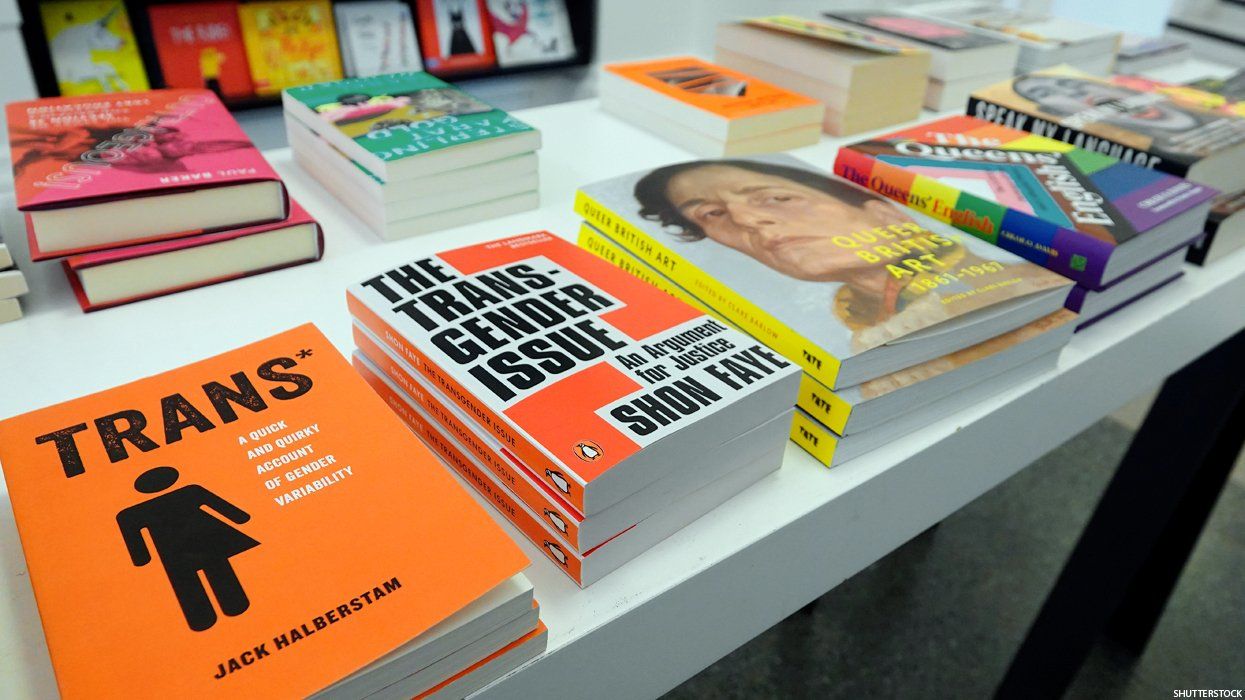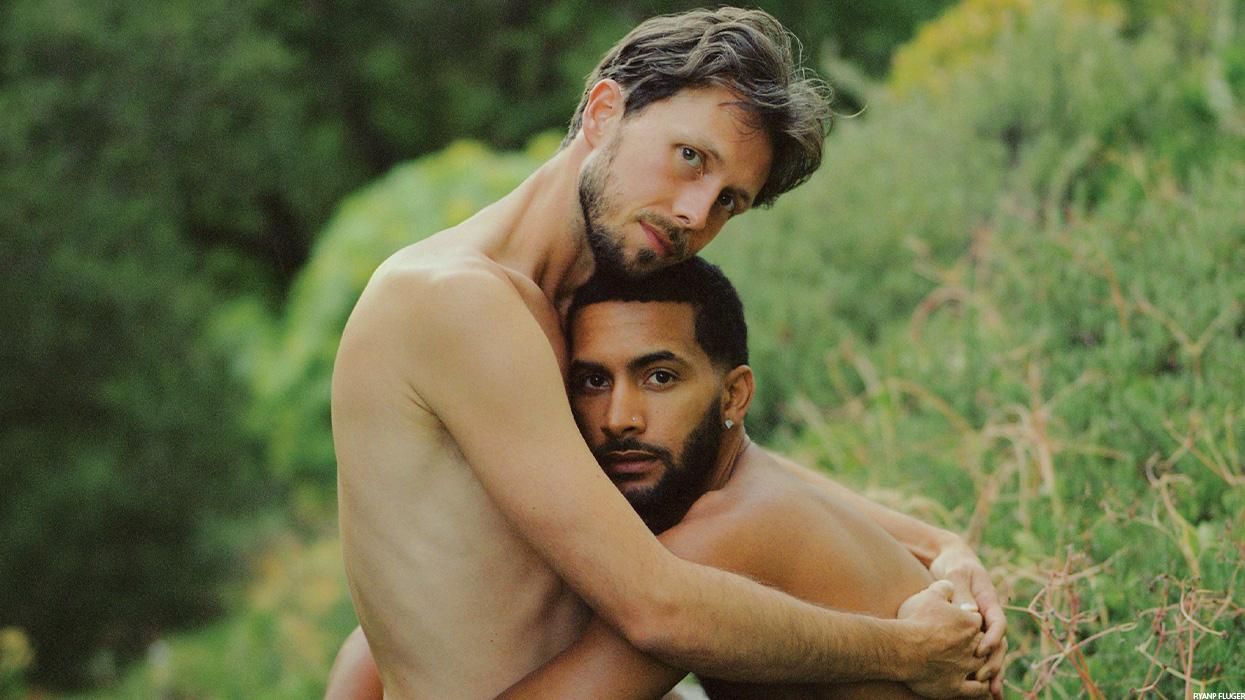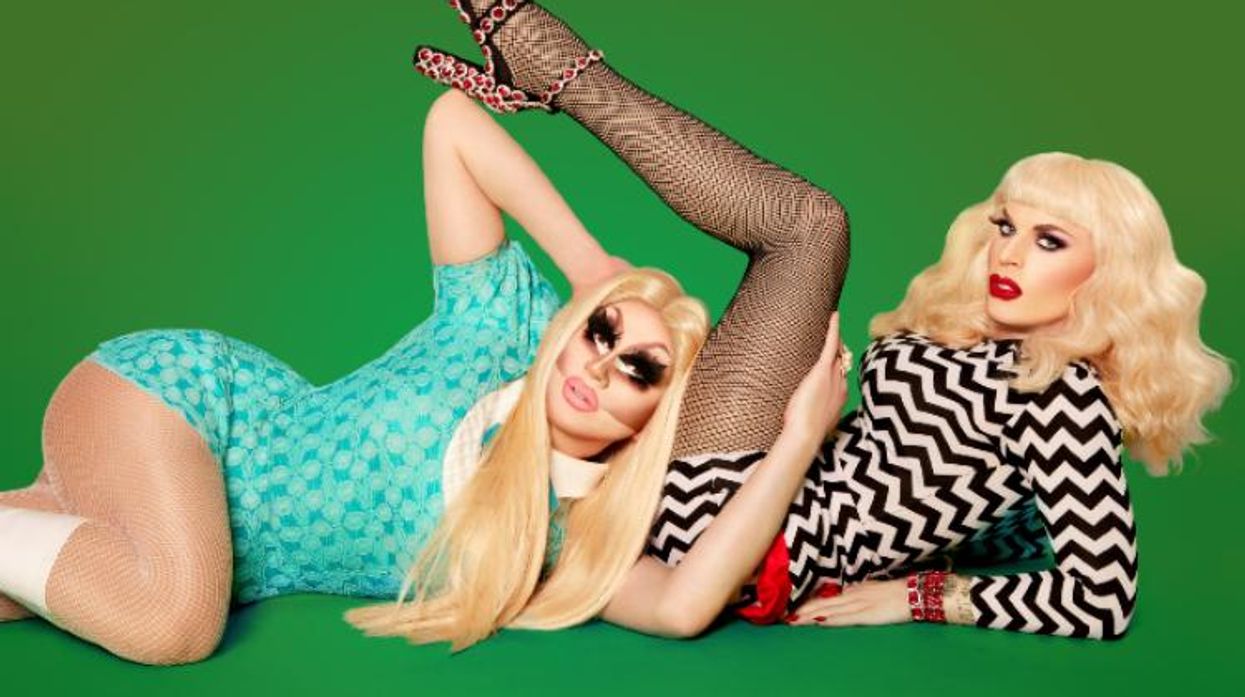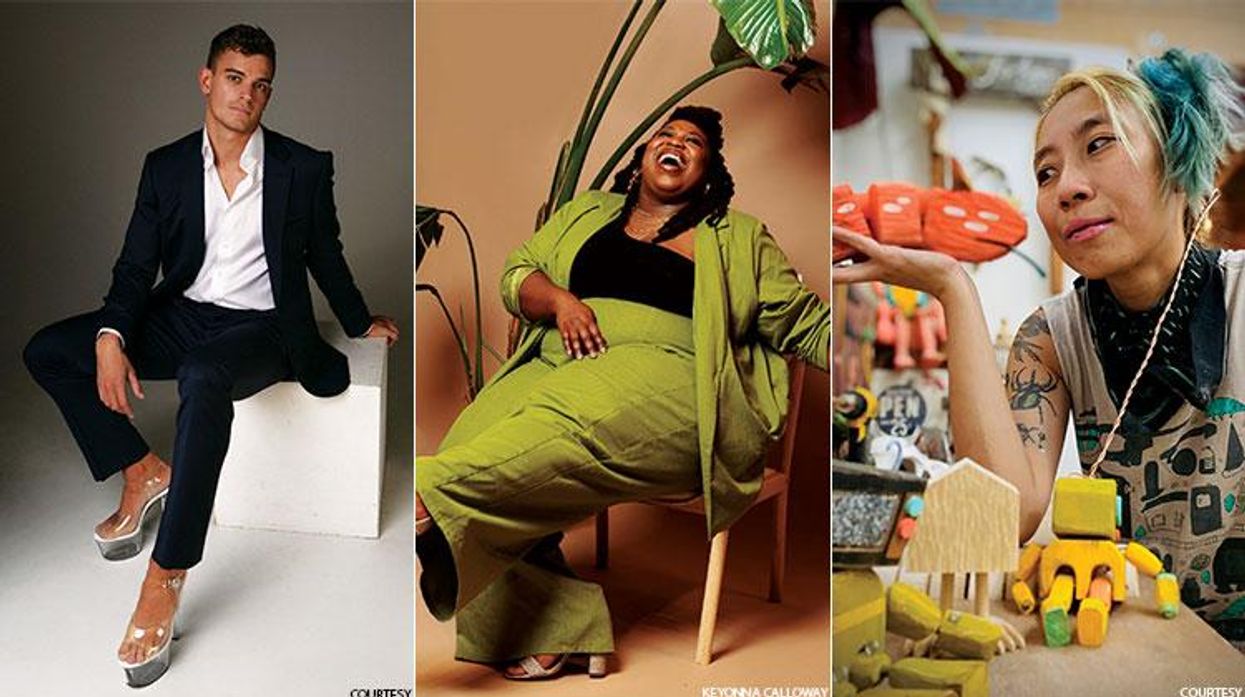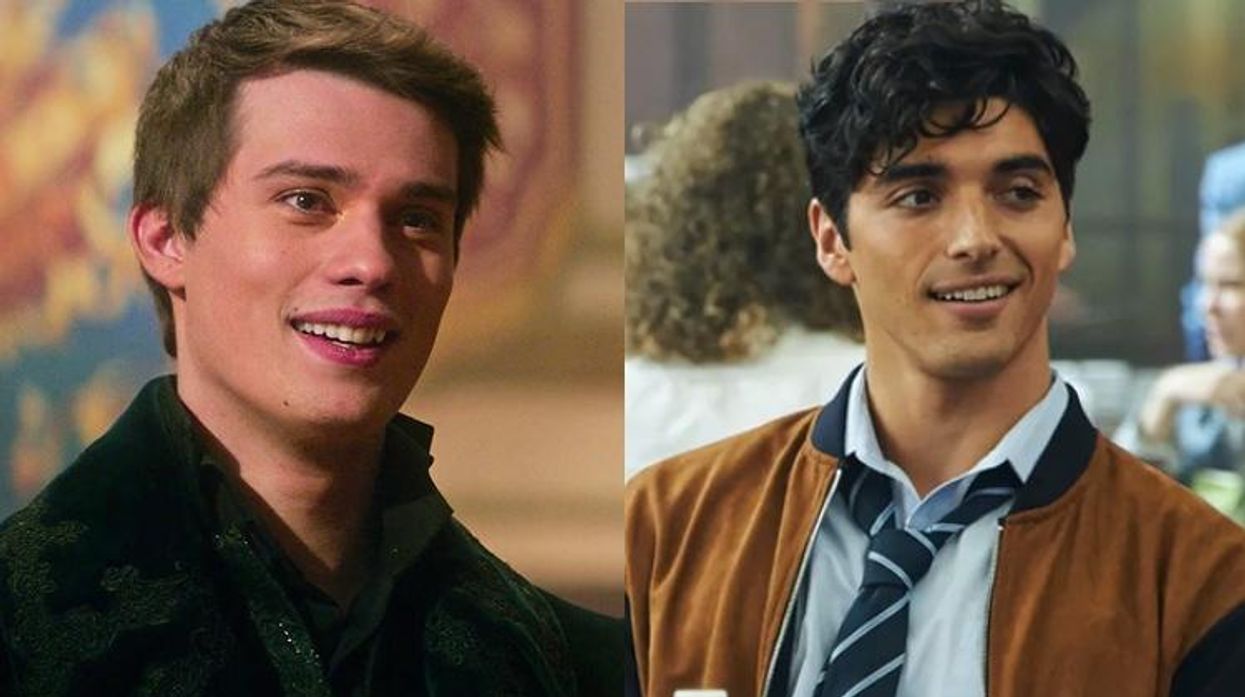Photography by Ricardo Nelson. (Left: Nicole Dennis-Benn. Right: Marlon James).
Nicole Dennis-Benn and Marlon James are critically acclaimed queer Jamaican writers whose lauded fiction summons the images, smells, vernacular, and tastes of the island country. Jamaica is their home, but they are not ashamed of highlighting its complexities as well as its beauty.
James's Man Booker Prize-winning A Brief History of Seven Killings and Dennis-Benn's upcoming Here Comes the Sun bring to the fore the inner worlds of their characters. Their books resist the erasure of LGBT life in Jamaica even as the writers elevate the broader culture and politics particular to their native country.
Queer and Jamaican may seem to be conflicting identities, and when Jamaica is talked about -- and imagined -- it is often perceived as a queer-hating black space. But this may or may not be true, depending on whom you ask. In this conversation, James and Dennis-Benn share their insights on their collective home and individual works.
Out: Talk about your home as a space where you may have experienced the complex realities of beauty, violence, community, and estrangement.
Marlon James: To answer that question, I'd have to have been gay in Jamaica, and I wasn't. I was very much in the closet and very much in the church, which is a very big closet in Jamaica. I've been in Jamaica twice so far this year, and I'm going there again in a few weeks, and the thing that is complicated now is this kind of "don't ask, don't tell" [rule]. There are quite a few queer writers that Jamaica has produced -- queer writers who Jamaicans know are queer. There are also a pretty considerable number of queer writers who have dealt with queerness publicly and are considered "out," which is a whole other discussion. When I'm in Jamaica, I'm insulated by class -- insulated by the creative class, insulated by economic class -- people who've traveled, and people who are not homophobic. And people who are just generally happy for what I, and other writers, create or accomplish. A huge part of my support system is living in Jamaica.
Nicole Dennis-Benn: What I realize as a writer is the love/hate relationship I have with the country. Love, because it's a place where my childhood memories are buried and where my family still resides. And hate, because I resent the reasons why I felt I had to leave in the first place. I couldn't have written about Jamaica had I stayed. I was never out in Jamaica, but having these feelings for other women left me feeling isolated, knowing if I acted on them I couldn't be sure of the repercussions. Most importantly, I left for economical and class reasons. I am from a working-class family, and I felt like I had to leave to achieve my dreams. My mother saw that I was very depressed and reached out to my father, who'd migrated to the U.S. before me. He said, "Come to America, come to university here, and explore." I feel I would have eventually hit a glass ceiling, or concrete ceiling, if I had stayed home, for class reasons. In terms of beauty, many Jamaicans would mindlessly rattle off our motto, "Out of Many, One People," because as children it was drilled into our heads to silence dialogues about racial, ethnic, and class disparities. It's sort of like hypnosis to numb the pain of our colonized history. Growing up dark-skinned, I surely felt it. Year after year, only certain girls -- those of a cafe au lait hue, from upper-class families -- would go on to represent our country in Miss World and Miss Universe competitions. Subsequently, many darker-skinned working-class girls -- like my character Thandi in Here Comes the Sun -- and even working-class boys spend money they do not have to bleach their skin to try to increase their worth. Classism and complexionism are still very sensitive topics in Jamaica.
MJ: That's something that can get lost: Even if I weren't gay, I think I'd have left anyway.
Nicole, for an essay in The Feminist Wire, you wrote in reference to your wedding, "All we did was express our love before family and friends in a place I still call home. A place known for its homophobia, yet still embracing us." You went on to say, "Jamaica was ready. America was ready. The world was already poised, watching, waiting." Is Jamaica actually ready?
NDB: No, we still have a far way to go. I said that in 2012, shortly after witnessing the former prime minister of Jamaica say to the country, "I'm not going to discriminate against anyone who's gay in my cabinet." So I took that and I ran with it, thinking, Oh my gosh, she's going to be really open to us. I was planning my wedding at the time. Our wedding wouldn't have happened had it not been for open Jamaicans in that hotel, in that villa, who were helping us get ready, helping us with everything we needed to do to walk down that aisle. On one hand it's open in that sense -- when you do have the resources and you're a person of a certain class who has traveled, who is educated -- advantages, using Marlon's words, that "insulate" you. Jamaica is a very religious country packed with churches, and the majority of our country is homophobic. To this day, our government still supports the "buggery law" -- a law that has been outdated for centuries in England, where it was first drafted. I'm lucky to know Jamaicans who are OK with my sexuality -- although some are not comfortable having their tolerance made public. When I had a wedding ceremony with my wife in Jamaica four years ago, I had to protect Jamaicans who couldn't afford to be outed as guests. At the time, gay Jamaicans couldn't even be interviewed on television without a dark screen hiding them, their voices altered. Today, some individuals are making a courageous effort to show their faces, hoping the rest of the country will see them as people. One's survival as a gay Jamaican is contingent upon social class, which determines where you live, the type of agency you have in the workforce, and the resources you have at your disposal. The majority of working-class gays, lesbians, and transgender individuals face a great deal of stigma; their jobs, social standing, and, in some cases, their very lives could be in jeopardy. Many have to leave their communities to feel safe. And many more have to choose between remaining in the closet or leaving the country. My hope is that the Jamaican government will begin to value the LGBT community's invaluable contributions to the arts, education, and culture and work harder to ensure their safety and rights.
Marlon, in your interview with Rolling Stone, you seemed less hopeful.
MJ: I was less hopeful, in a way. Once I was flying to Jamaica and was put in economy, and I said to a friend of mine on the phone, "Listen, if anything happens to me, if I see one frown on somebody's face [because they suspect I'm gay], I'm not boarding the flight." And my friend said, "Why are you perpetuating negative stereotypes?" I replied, "Who are we kidding by pretending that this kind of acute homophobia isn't still there?" A lot of homophobia in Jamaica can come across as the last shout of a dying moment, which is not to say everyone is suddenly open-minded. No. But I do think people are getting tired of the discussion; people are getting tired of being considered homophobic, or being homophobic.
NDB: I write for people who have no voice, no platform, and no community. My character Margot in Here Comes the Sun is a working-class Jamaican woman who cannot express her love for another woman. Margot would not be someone who is privy to the insulated realm of student life at the University of the West Indies. Here is a woman who would have had it hard, had she been out. Also, it's really hard, being married and living in Bed-Stuy, Brooklyn. A huge Jamaican population lives here, and I walk hand in hand with my wife in front of Jamaicans -- the ones who had to emigrate for socioeconomic reasons and thus are from that class with less exposure and/or insulation. They're not chasing me with machetes or anything, but the look that you get is so hurtful, so crushing, because they claim me, but they distance themselves from me at the same time.
MJ: They have the hatred, but they have no avenue to express it. They don't have a church to legitimize it.
NDB: Right. And it still hurts. That look -- that one look, that one song -- can cut us so deeply. As humans, we want to be loved.
Marlon, your work has been talked about around the world, especially after you received the Booker Prize. How has it been received in Jamaica? I am reminded of the scripture: "A prophet is not without honor except in his home town, and amongst his relatives in his own household."
MJ: The fact that the book is a success makes a lot of people [in Jamaica] respond to it favorably, because we Jamaicans love success. But I think also, younger Jamaicans, certain people in their 20s and 30s, look to it as a sign that we're finally talking. Because if you grew up in Jamaica, you grew up in a culture where we don't talk, we don't confront issues. We talk about it on our verandas, in our living rooms, when we have some rum, when we're in a safe space, but we're not going to be talking anywhere publicly, where we can be held accountable. And there's nothing in that book that nobody has said before. What I hope is that the book is the beginning of bringing discussions front and center. This is something that younger Jamaicans really respond to. I think they also responded to it because it is literature that sounds like them.
Nicole, what are you hoping for in terms of reception of your soon-to-be-published work?
NDB: I've done a couple of readings of an excerpt, and I've gotten women coming up to me, in tears, [saying] "Oh gosh, you heard our voices." Most working-class women feel invisible, pushed to the margins of society, and silenced. While rape, incest, and violence against women remain prevalent in Jamaica, the focus tends to be on other issues that exclude them. I wanted to delve into the lives of these three women in Here Comes the Sun because women's bodies are usually territories for invasions and decisions made without our consent, be it in a first-world or a third-world country. While writing this novel, I was inspired by renowned Kenyan artist Wangechi Mutu, who depicts the exploitation and eroticization of the black female body through a feminist lens. I had run into Marlon at a literary event in Brooklyn and expressed to him my concerns with Jamaicans reading the book and seeing the depiction of tourism and the other side of our so-called paradise. He looked at me and said, "You don't work for the Jamaica tourist board, so don't feel guilty about that." It was the perfect response. And then there was my concern with people reading and dismissing Margot because of her sexuality, which is not the defining thing about her character. But I quickly got over that, too. At this point, I'm like, get over it. As a lesbian woman, I'm also very Jamaican, and I am a writer. I really want to open people's eyes. Here Comes the Sun is a love letter to Jamaica -- my attempt to preserve her beauty by depicting her flaws.
Like what you see here? Subscribe and be the first to receive the latest issue of OUT. Subscribe to print here and receive a complimentary digital subscription.




